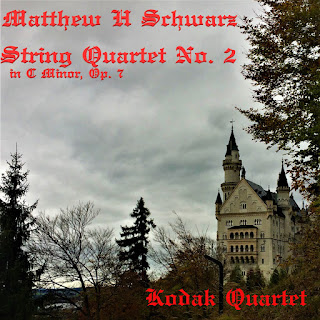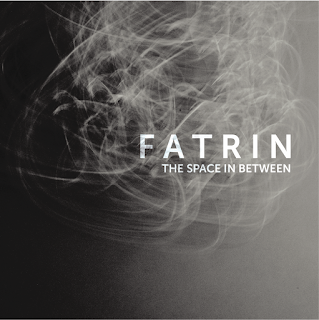Annika Socolofsky - "I Tell You Me" album review
Annika Socolofsky - I Tell You Me album review
Socolofsky's voice and the gorgeous sound of the ~Nois quartet never fails to give goosebumps of anticipation.
Annika Socolofsky's emotional song cycle, I Tell You Me, follows up on her previous album release Don't Say A Word. Taking a step back from the blunt rage in her first installment, I Tell You Me continues to explore queerness, but now through the lens of joy and celebration. With music and text by Socolofsky, I Tell You Me tears apart the traditional nursey rhyme "Sugar, Spice and Everything Nice", reinterpreting and expanding on original text segments to result in an empowering demonstration of self-expression. The album, releasing September 8th through Carrier Records, consists of the three-song cycle as well a remix of the three songs, each crafted by a different queer artist. While the concept of remix is certainly not new, it is incredibly unconventional, especially within the standard constraints of classical music. Socolofsky's gamble pays off well; all three of the remixes are new and different, re-reinterpreting her work and allowing a space for other voices to add to her celebration.
The album features Socolofsky herself on voice accompanied by the stellar ~Nois saxophone quartet, who commissioned the work. Socolofsky's amplified voice and the four saxophones combine to create an incredibly eerie opening to the first song, Sugar and Spice. The text supports the off-putting beginning to the album, with Socolofsky listing things little girls may be made of in contrast to 'sugar, spice and everything nice'. Soon after, a steady pulsation arises from members of the quartet, with single notes and breathing noises being passes around the ensemble. The shift to a more organized sound aligns with the original lyrics, before coming back to an extended version of the first section, with hints at the repeated saxophone motif hiding in the background. The implementation of noise and restraint of relying on harmony feels simple, but in fact creates an intensely emotional reaction, especially when finally reaching the sustained pureness of the last note.
What are Little Girls Made Of? unfolds with a beautiful a cappella hummed melody. The second song showcases the folksy side of Socolofsky's voice and how well it combines with her implementation of compositional craft. Directly opposing the first song, Little Girls implores we listen to the harmony and expertly voiced saxophone chords. She provides an immense sense of expectation in each swell, often forcing us to wait and hold our breath for the resolution. Socolofsky's voice and the gorgeous sound of the ~Nois quartet never fails to give goosebumps of anticipation.
The final song in the cycle, They Tell Us We, relies more on motion than beauty. Implementing several now standard rhythmic techniques for contemporary composition, Socolofsky's mixed meter and additive rhythms do not feel stale. The fun, energetic nature of the writing and bouncing basslines in the bari sax transform Socolofsky's previously passive joy into an active one. She longs to share who she truly is while triumphantly defying what it is 'they tell us'. The music is expertly integrated with her new text. She has found a way to make each phrase clear and coherent while pulling us towards the necessary profanities in a friendly manner (an unfortunate requirement to 'fit in' with many classical music listeners). They Tell Us We also completely merges the vocalist with the saxophone quartet, with the high saxophones often 'mocking' vocal lines or playing along in unison to draw attention to specific words. To culminate the cycle, a piercing soprano saxophone note swells to a peak before the quartet drops out completely and Socolofsky leaves us with one emphatic "I Tell You Me."
~Nois continues to legitimize the saxophone quartet as a premiere ensemble formation for classical music. The quartet's extreme level of musicality when presenting Socolofsky's music is profound. The four players blend together in such convincing manner they could easily be mistaken for one large, living and breathing reed organ. Combined with Socolofsky's effective voicing and orchestration, ~Nois brings I Tell You Me's intricacies to fruition, forcing us to clearly listen to every word and each note. With such strong playing and timbral range, hopefully future composers explore the medium of the classical saxophone quartet.
Socolofsky brings her interest in crossing genres to the forefront for the second half of the album. In the true spirit of "individual expression", as Socolofsky says, she has asked highly skilled queer sound artists to each remix one of the songs from I Tell You Me. Phong Tran, Brooklyn-based composer and artist, presents Sugar and Spice [Phong Tran's Chemical X Remix] turning Socolofsky's already spacey music into a drifting soundscape of buzzing and gloom. Tran forces us to reflect on the eeriness of Socolofsky's individual word choices, taking a much darker tone than the original. What are Little Girls Made Of? [Darian Donovan Thomas' Verdant Murmers Remix] continues the dark trend of remixes, before quickly letting the clouds open up and part. Darian Donovan Thomas, composer and multi-instrumentalist, blows up Socolofsky's original by layering her voice over and over again, creating an effect of intricately scored polyphony. Thomas' remix is much more sing-songy and stays true to Socolofsky's melodies, allowing one to actively sing along if they know the original.
Drastically different from the first two remixes, the album concludes with No Plexus' They Tell Us We [No Plexus' Transcendence Remix]. The electronica duo based in Amsterdam turns Socolofsky's mixed meters into a full EDM groove. Unlike other past attempts of turning classical into club music, No Plexus brings a convincing and stylistic rendition of the original work. Complete with drum machine beats, cliché vocal processing, and beat drops, the Transcendence Remix could easily be mistaken for an original contemporary EDM piece. While risky for Socolofsky to dedicate the entire second half of I Tell You Me to these remixes, her decision literally puts her words into action, as she wants other queer artists to celebrate their unique voices. The three remixes take different approaches to her originals, but all are exemplary models of how the modern conception of a remix can be aptly applied to contemporary classical music. The remixes presented on I Tell You Me show true application of merging musical genres equally, rather than the standard convention of just peaking into a popular artform via the lens of a 'superior' classical music.
listen to and purchase the album on BandCamp here starting Sept. 8




Comments
Post a Comment